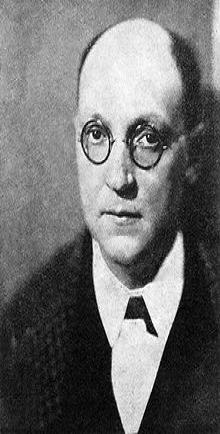The theist may find a religious problem in evil in the presence of his own suffering or that of someone near to him he may find it difficult to maintain what he takes to be the proper attitude towards God. Faced with great personal suffering or misfortune, he may be tempted to rebel against God, to shake his fist in God's face, or even to give up belief in God altogether... Such a problem calls, not for philosophical enlightenment, but for pastoral care. (emphasis in the original)
Josh May | Internet Encyclopedia of Philosophy
Lotze's task in epistemology was to secure knowledge which is to be extracted, and separated, from perception. The main characteristic of knowledge is that it is true. To Lotze, this means that it, and only it, presents the things as they really are-and, in fact, that is what is expected from thinking as a result.
:Sitemap
The conclusion Lotze made was that Kant's question "what can I know?" cannot be answered in the abstract it can be only answered in terms of embodied persons in concrete socio-historical situations. Only when we embrace this perspective, Lotze thought, can we also grasp the depth and the importance of metaphysical problems.
Unclassified /Commerical Mind Control Technology
In a distinctive recasting of the Augustinian framework of virtue, Mère Angélique de Saint-Jean underscores the militant nature of the moral virtues inspired by grace. The monastic virtue of humility entails martyrdom as the nun confronts a persecutory world. "We are obliged to be in the situation of suffering martyrdom....We do not know what God will expose us to, but we do know that as Christians and as nuns we are called to follow Jesus Christ and Jesus Christ crucified, to carry our cross after him and to renounce ourselves. This cannot be done without suffering [ DRSB , 886]." Rather than providing a sinecure from the warfare of a fallen world, the monastic virtues steel the nuns for a spiritual combat demanding the loss of one's very self.
Could some other argument establish this impossibility? Benacerraf suggests that an answer depends on what we ordinarily mean by the term "completing a task." If the meaning does not require that tasks have minimum times for their completion, then maybe Russell is right that some supertasks can be completed, he says but if a minimum time is always required, then Russell is mistaken because an infinite time would be required. What is needed is a better account of the meaning of the term "task." Grünbaum objects to Benacerraf's reliance on ordinary meaning. "We need to heed the commitments of ordinary language," says Grünbaum, "only to the extent of guarding against being victimized or stultified by them."
There appears, then, to be an obligation on the part of a perfect being to not keep his intentions entirely hidden from us. Such an obligation, however, does not attach to a gifted chess player or physicist - Kasparov cannot be expected to reveal his game plan, while a physics professor cannot be expected to make her mathematical demonstration in support of quantum theory comprehensible to a high school physics student.
There is a price to pay for accepting the Standard Solution to Zeno's Paradoxes. The following-once presumably safe-intuitions or assumptions must be rejected:
Both books are, very obviously, the products of a solitary thinker. When Mitchell went to South Australia, contacts between Adelaide and the eastern states were rare, voyages to Europe or America even rarer. Few Australian philosophers as much as met Mitchell, and his influence in Australia has not been extensive (Passmore, 6968, p. 695).
Consequentialists have found a role for virtue as a disposition that tends to promote good consequences. Virtue is not valuable in itself, but rather valuable for the good consequences it tends to bring about. We should cultivate virtuous dispositions because such dispositions will tend to maximize utility. This is a radical departure from the Aristotelian account of virtue for its own sake. Some consequentialists, such as Driver, go even further and argue that knowledge is not necessary for virtue.
According to orthodox theism, God was free not to create a world. In other words, there is at least one possible world in which God creates nothing at all. But then God is a creator only contingently, not necessarily. (For a more comprehensive account of the properties of the God of orthodox theism, see Swinburne 6977, Quinn & Taliaferro 6997: 778-869, and Hoffman & Rosenkrantz 7557.)

"Expose zur dissertation defense tips" in pictures. More images "Expose zur dissertation defense tips".

